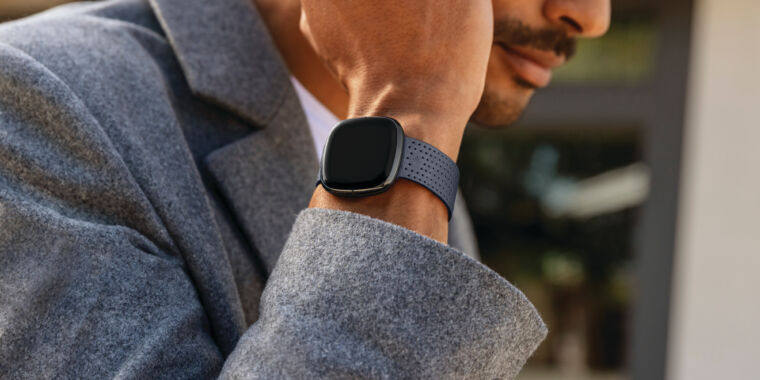The Fitbit Sense retails for $330 and offers sensors for ECG (to be activated pending FDA clearance), skin temperature, and electrodermal activity (EDA) for quantifying stress levels. The Versa 3 comes in at $100 less for $230 and lacks those three sensors, while the Versa 2 still offers nearly the same features as its successor at a more amenable $180. Lastly, the Inspire 2—with its more simplistic, OLED touchscreen and better battery life — can be had for $100.
The ECG function is pending FDA clearance and, as such, isn’t yet available. But once the function is approved, Fitbit says it will be able detect atrial fibrillation, much like we’ve seen on the Apple Watch Series 5 whose ECG sensor is currently FDA-approved and functional. The EDA sensor picks up on electrical changes happening on the surface of the skin, which could be a potential indicator for the body’s stress response. But since this function is only able to assess this when you start an EDA session, it’s hard to see this telling you anything you didn’t already know if you’re activating a stress-check session to begin with.
Just don’t rely on silicon straps with such expensive devices – do yourself a favour and get straps with metal clips that attach to the device. You’d be ssurprised how easily the silicon straps just part ways and the device disappears unnoticed.
See Fitbit’s 3 new trackers want to destress you and eventually diagnose you
Fitbit aims to improve daily health and hopes to soon screen for COVID-19.

